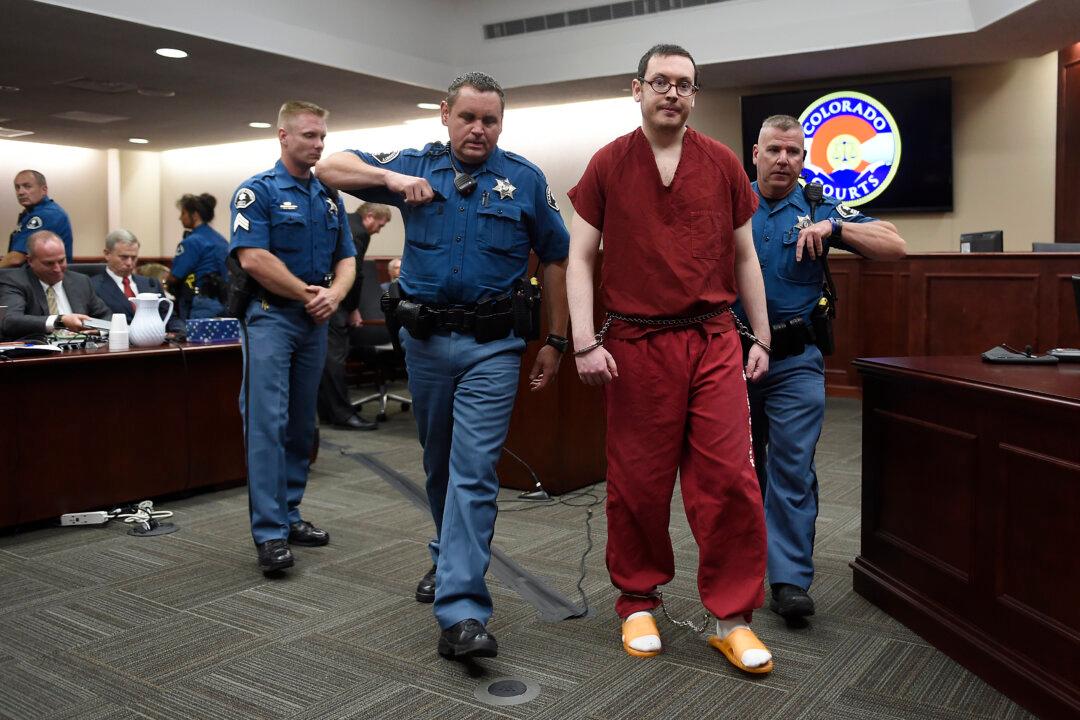CENTENNIAL, Colo.—Belittled by the judge and jeered by spectators, James Holmes was sent to prison for the rest of his life Wednesday, while the survivors of his murderous attack on a Colorado movie theater wondered aloud how they would spend the rest of their days.
Judge Carlos A. Samour sentenced Holmes to the maximum — 12 consecutive life terms without parole plus 3,318 years — then made a final, contemptuous order: “Sheriff, get the defendant out of my courtroom, please.”
Samour described Holmes as an angry quitter who gave up on life and turned his hatred into murder and mayhem against innocent strangers.
Survivors and victims’ family members in the gallery cheered, and someone shouted “Loser!” as deputies took Holmes away.
The long, grueling trial came to its formal conclusion three years and 37 days after Holmes murdered 12 people and tried to kill 70 more during a midnight showing of the Batman movie “The Dark Knight Rises” in the Denver suburb of Aurora.
Samour, who was scrupulously respectful toward Holmes throughout the trial, launched into a withering condemnation of him as someone who knew right from wrong but “robbed the world of all the good these victims would have accomplished” and irreparably damaged the lives of hundreds more.
“It is almost impossible to comprehend how a human being is capable of such acts,” Samour said.






